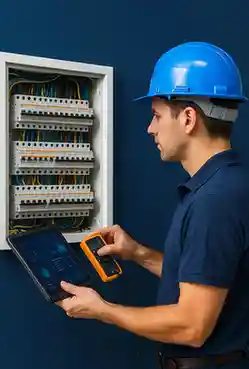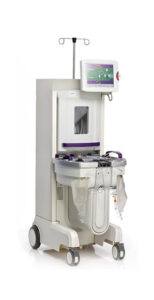Property Safety Services in the UK – Safehome London
Introduction
When it comes to owning or managing a property in the UK, safety isn’t just an option—it’s the law. From fire safety checks to electrical inspections, property owners are required to ensure that every aspect of their building is safe for occupants. Whether you’re a landlord, business owner, or homeowner, understanding property safety services is essential for compliance and peace of mind.
Understanding Property Safety Services
Property safety services encompass a range of inspections, tests, and certifications designed to ensure buildings meet national safety standards. These services help identify potential hazards before they become serious risks—protecting lives, reducing liability, and maintaining property value.
Property safety services are vital for:
-
Landlords renting residential or commercial properties
-
Businesses occupying offices or industrial spaces
-
Public buildings such as schools, hospitals, and government facilities
Legal Requirements for Property Safety
In the UK, several laws govern property safety, including:
-
Health and Safety at Work Act 1974
-
Housing Act 2004
-
Regulatory Reform (Fire Safety) Order 2005
-
Electricity at Work Regulations 1989
-
Gas Safety (Installation and Use) Regulations 1998
Local councils also conduct random inspections, and failure to comply can result in heavy fines or even imprisonment.
Types of Property Safety Assessments
Let’s look at the most important types of property safety assessments that every property owner should know about.
Fire Risk Assessments (FRA)
Fire safety is one of the most critical aspects of property management. A Fire Risk Assessment identifies fire hazards, evaluates risks, and outlines safety measures. Trained assessors examine escape routes, fire alarms, and extinguishers to ensure compliance with UK fire safety laws.
-
Who needs it? Every property with tenants or employees.
-
How often? Annually or when major changes occur.
Electrical Installation Condition Report (EICR)
An EICR checks the safety of electrical systems within a property. Certified electricians inspect wiring, sockets, and circuits to ensure they’re safe and compliant.
-
Legal requirement: Every 5 years for rental properties (or change of tenancy).
-
Benefit: Prevents electrical fires and ensures compliance with the Electricity at Work Regulations 1989.
Gas Safety Certificates
Gas leaks can be deadly. UK law requires landlords to have an annual Gas Safety Check carried out by a Gas Safe registered engineer. The certificate ensures that all gas appliances, pipes, and vents are working safely.
-
Frequency: Every 12 months.
-
Penalty for non-compliance: Up to £6,000 fine or imprisonment.
Asbestos Surveys
Asbestos was widely used in buildings before 2000, but exposure can lead to serious health risks. An Asbestos Survey identifies whether asbestos is present and determines how it should be managed or removed.
-
Who needs it? Commercial and residential properties built before 2000.
-
Types: Management Survey and Refurbishment/Demolition Survey.
Energy Performance Certificates (EPC)
An EPC measures the energy efficiency of a property on a scale from A (most efficient) to G (least efficient). It’s mandatory for selling or renting out a property in the UK.
-
Validity: 10 years.
-
Legal minimum: EPC rating of E or higher for rentals.
Portable Appliance Testing (PAT)
PAT Testing ensures that electrical appliances such as kettles, heaters, or computers are safe to use. Technicians perform visual checks and electrical tests to detect faults.
-
Recommended frequency: Annually for business environments.
-
Benefit: Prevents electrical accidents and enhances safety.
Emergency Lighting Tests
In case of a power outage, emergency lighting helps people safely exit a building. Regular testing ensures lights function properly during emergencies.
-
Monthly: Short functional test.
-
Annually: Full-duration test.
Choosing a Certified Property Safety Provider
When hiring a property safety provider, always look for:
-
Competence and certification (e.g., NICEIC, BAFE, Gas Safe)
-
Experience with your property type
-
Transparent pricing and documentation
A reliable provider will handle multiple services under one roof, saving you time and ensuring consistency across reports.
Benefits of Regular Safety Inspections
-
Legal Compliance: Stay compliant with UK safety laws.
-
Reduced Risks: Identify hazards before they escalate.
-
Lower Insurance Premiums: Many insurers offer discounts for compliant properties.
-
Tenant Confidence: Safe properties attract and retain good tenants.
Common Mistakes Landlords Make
-
Skipping annual renewals or missing inspection deadlines.
-
Using uncertified assessors, leading to invalid reports.
-
Ignoring minor issues that later become major safety risks.
Avoiding these mistakes ensures long-term safety and compliance.
Conclusion
Property safety services in the UK are not just a legal formality—they’re a vital investment in protecting people, property, and your peace of mind. From fire risk assessments to electrical checks, every inspection contributes to creating a safer environment. Partnering with a certified provider guarantees compliance and confidence for landlords, tenants, and business owners alike.
FAQs
1. How often should I get my fire risk assessment updated?
At least once a year or after major changes to the property’s structure or use.
2. Is PAT testing mandatory for landlords in the UK?
While not legally mandatory, it’s strongly recommended to meet the Electricity at Work Regulations.
3. Who can carry out an EICR?
Only a qualified and registered electrician with NICEIC or NAPIT certification.
4. What happens if my property fails a safety inspection?
You’ll be given recommendations to fix issues, and in some cases, you must rectify them before the certificate is issued.
5. Can I manage all safety certificates through one provider?
Yes, many professional companies offer bundled property safety packages to cover all legal requirements.













